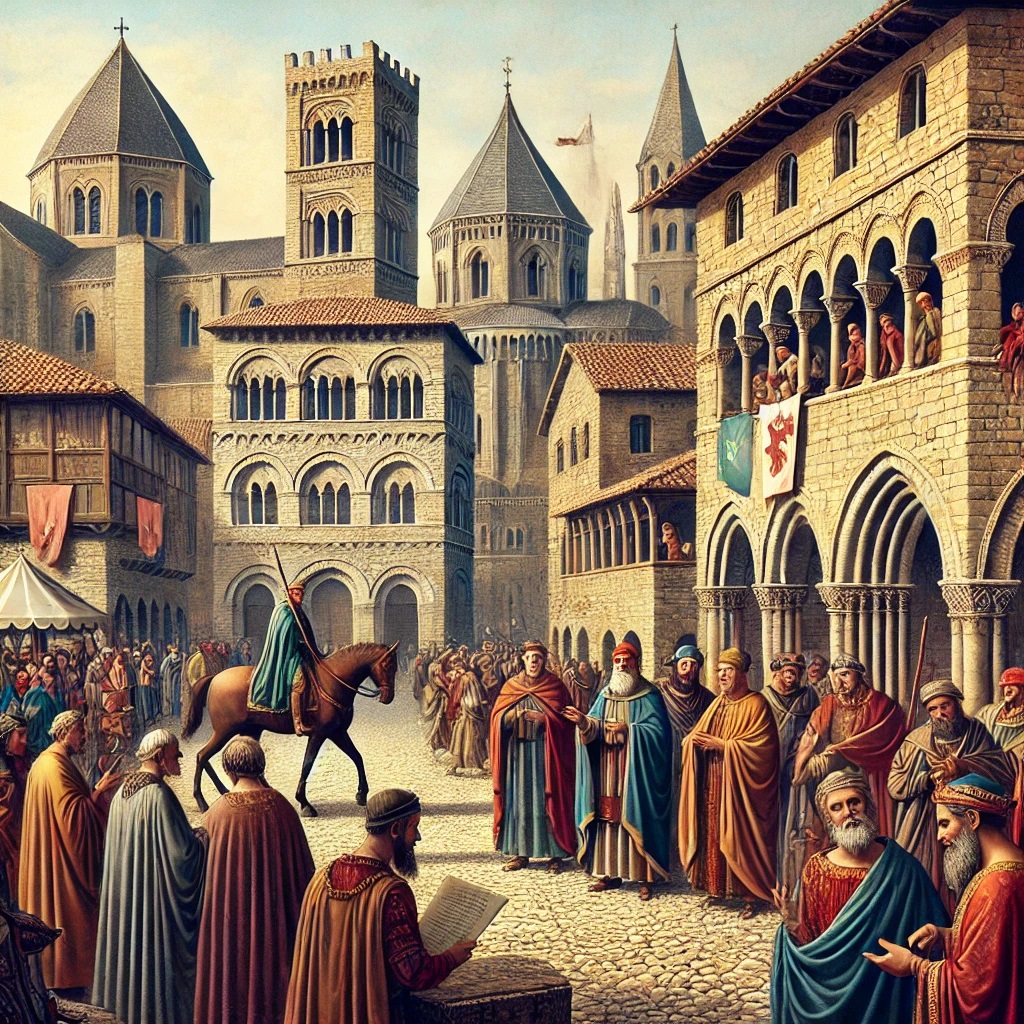Consuls and Podestas
The political experimentalism of medieval Italian municipalities

Consuls and Podestas: the balance between democracy and authority in medieval Italian municipalities, a political laboratory that marked European history - Image created with IA
At the height of the Italian Middle Ages, between the 12th and 13th centuries, the free communes of northern Italy represented a unique experience of citizen self-government throughout the European continent. Italian cities were autonomous, although formally subject to the sovereignty of the Germanic Holy Roman Empire, and in this context new political figures emerged to administer the city: the consuls and podestà.
Initially, city political power was mainly in the hands of the consuls, a symbol of collective power, and was vested in them by the main guilds and aristocratic families of each city. The consuls administered city justice, led the army and regulated trade. Each city possessed between two and twelve of them and they reflected a medieval conception of democratic power and shared governance. However, the power of the consuls had a limit: their disputes often degenerated into blood feuds between rival factions and they were unable to handle the problems of the municipalities peacefully.
To resolve the internal tensions between city factions, the mediaeval communes later decided to adopt a new form of government based on a neutral figure outside the local factions: the podestà. Introduced in the 13th century, the podestà embodied one of the earliest examples of a professional politician, as he came from another city or region than the one he was called to serve. Usually, only one was appointed for each city and podestas were true 'foreign arbiters', who were hired by municipalities together with their entourages of bodyguards and officials to govern the city.
If the consuls embodied the idea of shared and participatory democracy, the podestas reflected the need for stability in an increasingly fragmented and complex context. This eternal imbalance between autonomy and the need for authority shows how medieval municipalities were laboratories of political experimentation in a debate that could still be considered highly topical.
Rinaldo Comba. Storia medievale. Raffaello Cortina Editore, Milano, 2012.
Ludovico Gatto. L’Italia nel Medioevo. Newton & Compton, Roma, 2018.
2025-05-14
Francesco Toniatti
